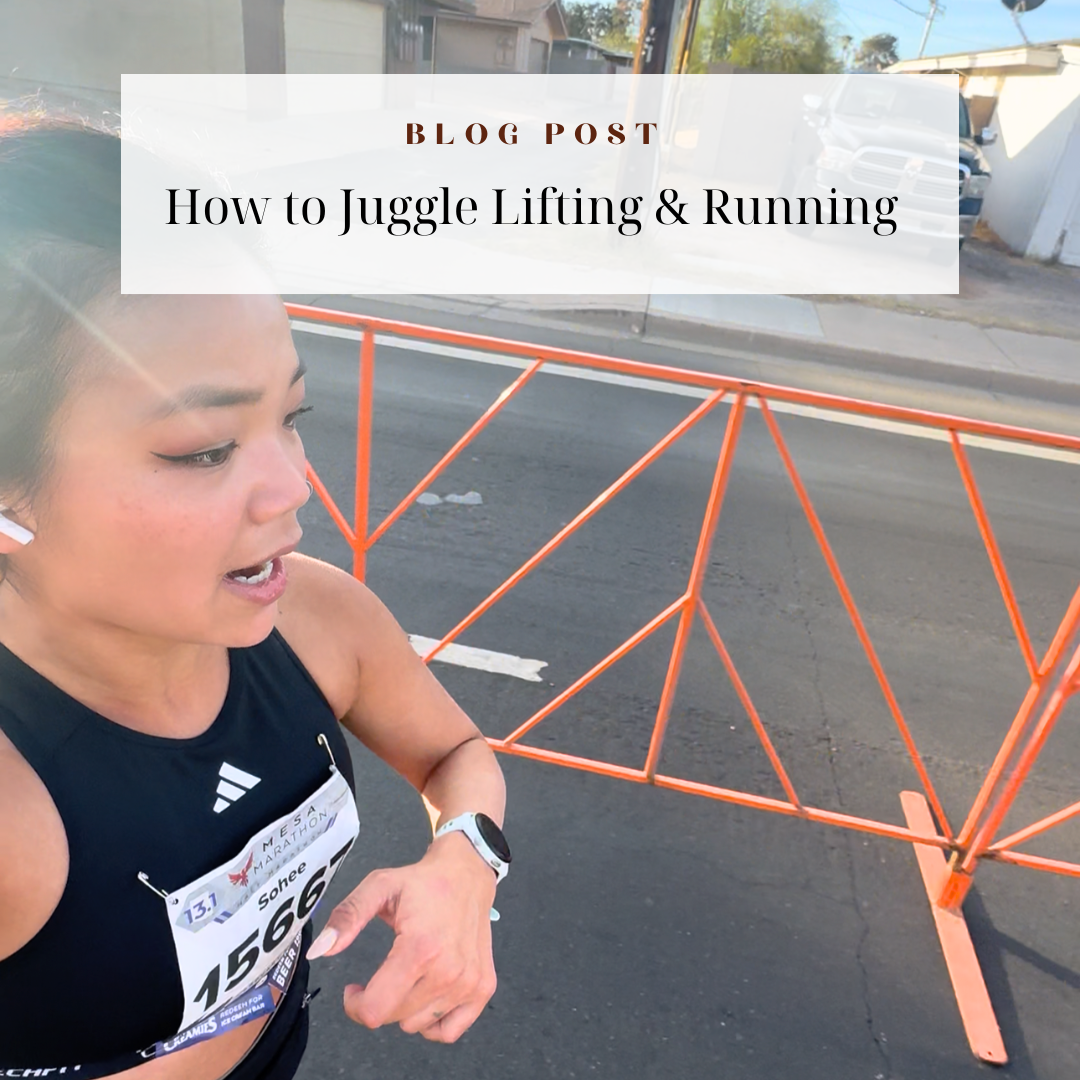Content Theft is Real, and It’s Happening Now More Than Ever
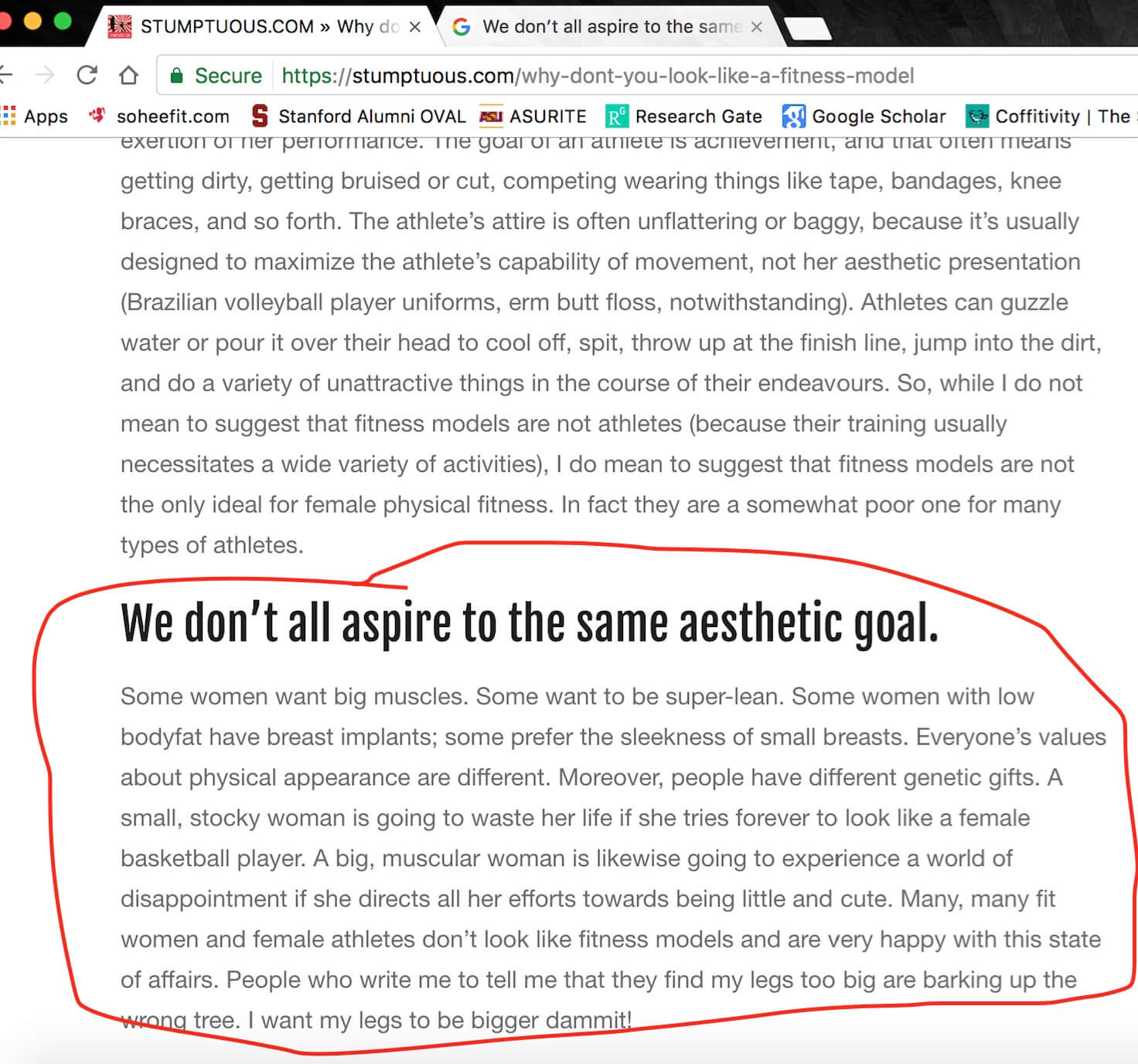
It seems that in the past few months, the tide has turned in the fitness industry. On the plus side, infographics have been spreading like wildfire, and with good reason – they’re a simple, easy way to communicate information and teach the public. On the other hand, however, the theft that has stemmed from this has spiraled out of control. The plagiarism and copyright infringement, in particular, have gotten out of hand.
First off, let’s make sure we all understand what plagiarism is.
According to the Merriam-Webster online dictionary, plagiarism is:
the act of using another person’s words or ideas without giving credit to that person : the act of plagiarizing something
Those who have received formal education in an academic setting should be more than familiar with the concept. It’s hammered into students’ heads from day one that plagiarism is a serious offense and, in many schools, can be grounds for expulsion.
And copyright infringement, while similar, has more to do with stealing and using someone else’s protected work without permission. This includes taking a graphic that someone else has taken the time to make and then removing their name and logo from the image to pretend that it was your own creation.
There are hundreds, if not thousands, of other people on social media nowadays stealing others’ hard work. They’ll take images or writing that others have produced and act like it’s their own. Oftentimes, this flies under the radar, and they get away with it for a long time.
I was inspired to write this post after sitting quietly and watching as my work and those of my colleagues have been ripped off left and right over the past several years. The straw that broke the camel’s back, in this case, was a personal trainer based in the UK named Siobhan Bancroft, who added me as a Facebook friend a while ago.
On June 29, I was scrolling through my Facebook newsfeed when a post of hers popped up. The topic was how the clean eating mentality could be harming individuals. Interesting! That was right up my alley, so I kept reading. A few lines in, I found myself raising my eyebrows because I quickly realized that actually, those were my exact words.

No worries; she’ll credit me at the end, right? Wrong-o!
My original post, published June 14, 2017:


Huh. I’m surprised. So of course, unofficial private investigator that I can be, I decided to take a look-see at what else she’s “written”. It wasn’t hard for me to recognize several of my posts that she’d completely ripped off, not to mention those of my friends and colleagues. Here are just a few snapshots.
Original post, published by me on January 23, 2017 — and also written up on my Facebook page on the same day:


Original post, published by me on April 29, 2017:

The last few sentences of her caption are my words verbatim:

Original post, published by Scott Baptie on May 13, 2017:
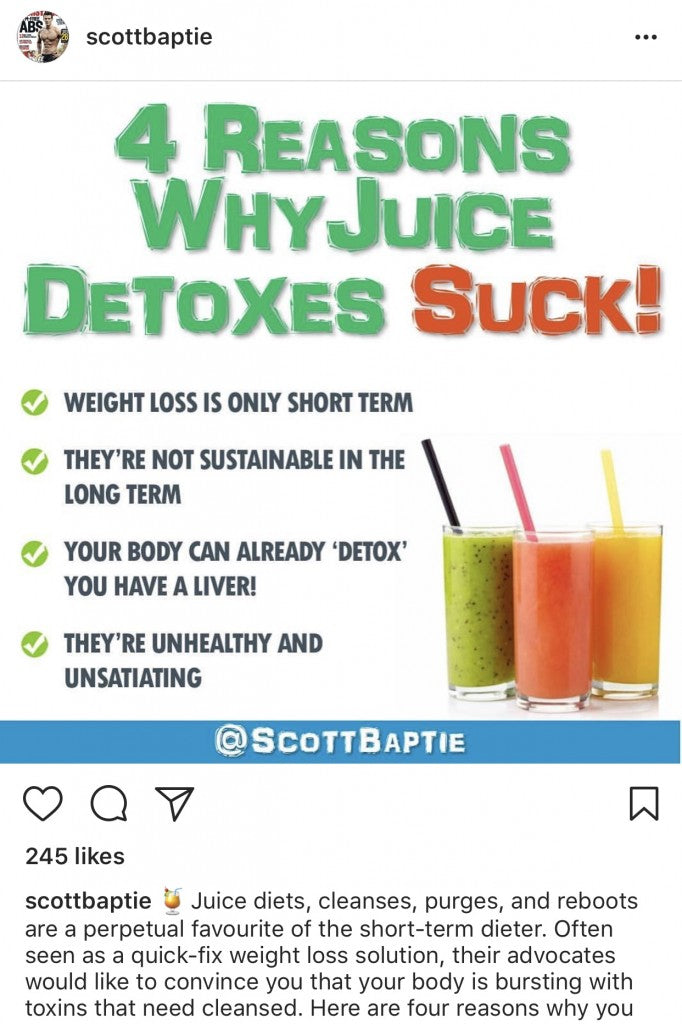
And Siobhan’s version – note that she simply cropped his name out of the image:

The original post, published by me on May 14, 2017:

Two of the sentences below are mine:

Original post, published by me on May 17, 2017:

The image she used for this post is not mine, but the caption is:

The original post, published by me on May 23, 2017:

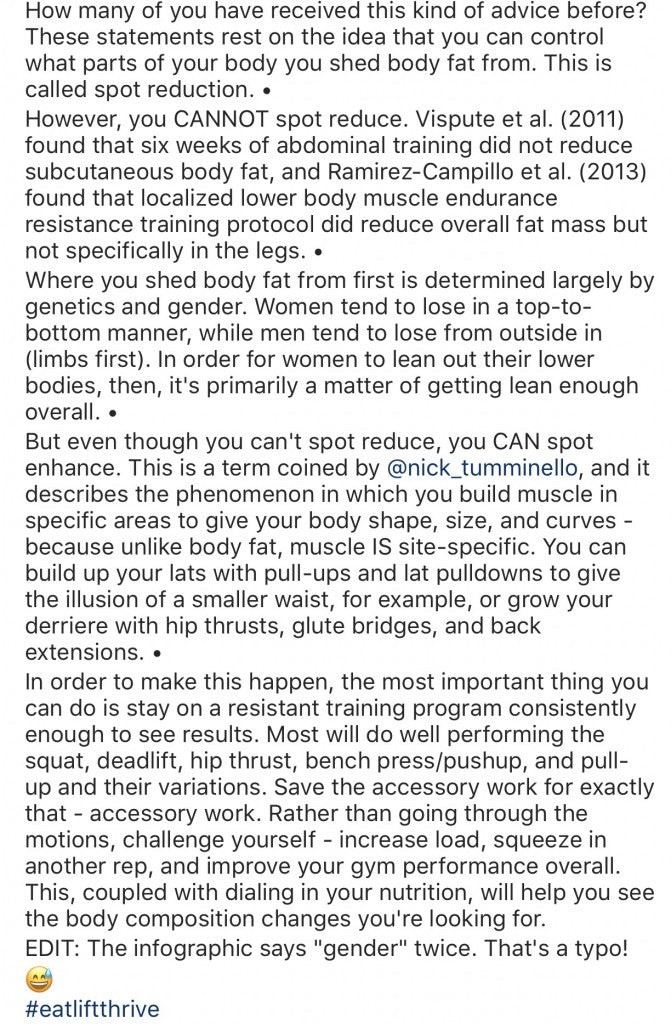
She re-created my infographic (including the typo, LOL!) and also copied the caption:

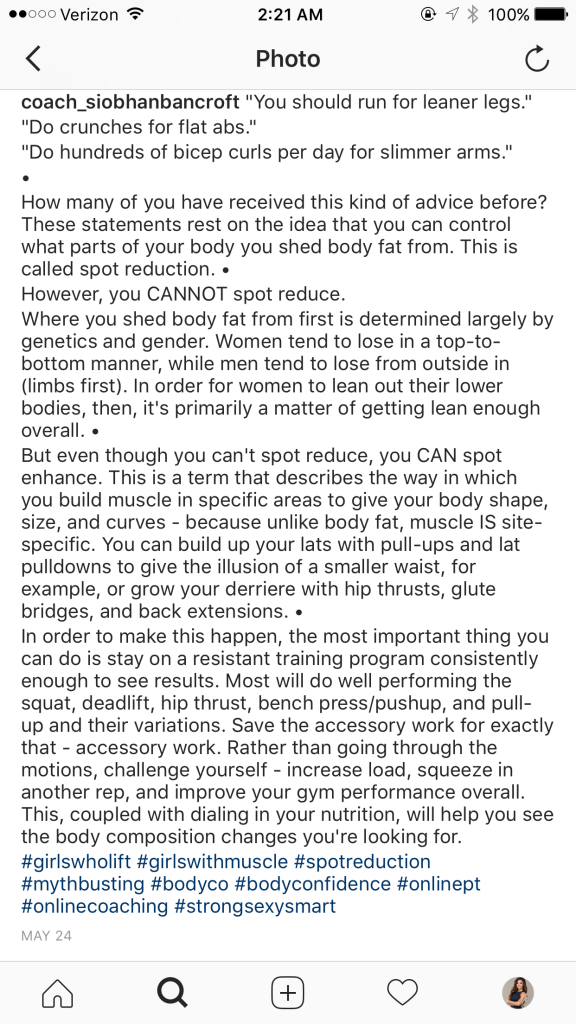
Original post, published by me on June 4, 2017:
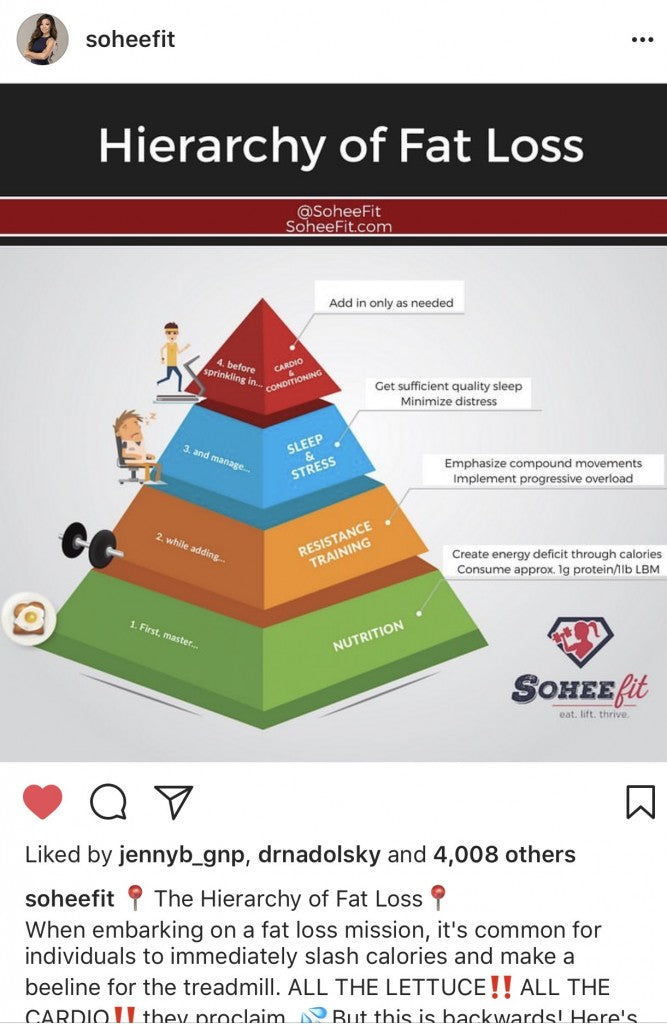

She stole my writing here:
And also here:

Re-posted infographic of Melissa Wilson by Carter Good on June 16, 2017:


She copied Carter’s caption to her Facebook:
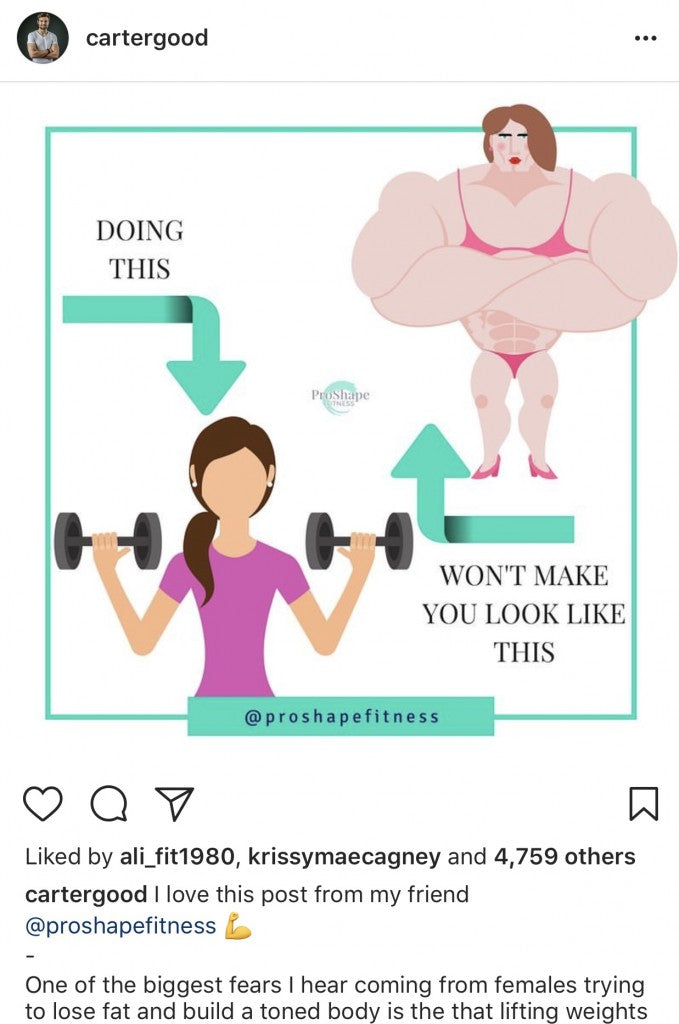
Original post, published by Carter Good on June 19, 2017:


She removed his logo from the infographic and also copied his caption:

Original post, published by Carter Good on June 22, 2017:

She copied the caption, modifying the words only slightly:

Original post, published by me on June 22, 2017:

Stolen post, published by Siobhan on her Facebook profile approximately one week later:
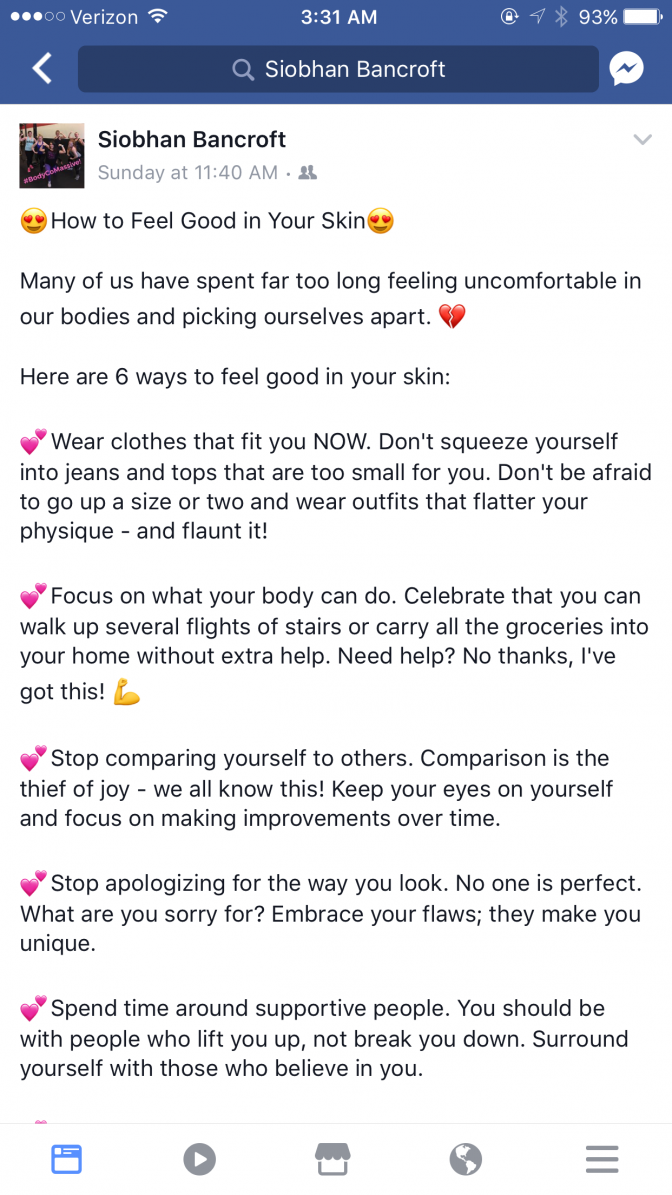

And here’s the craftiest one of them all. This is a snippet from a blogpost that I wrote over 4 years ago:
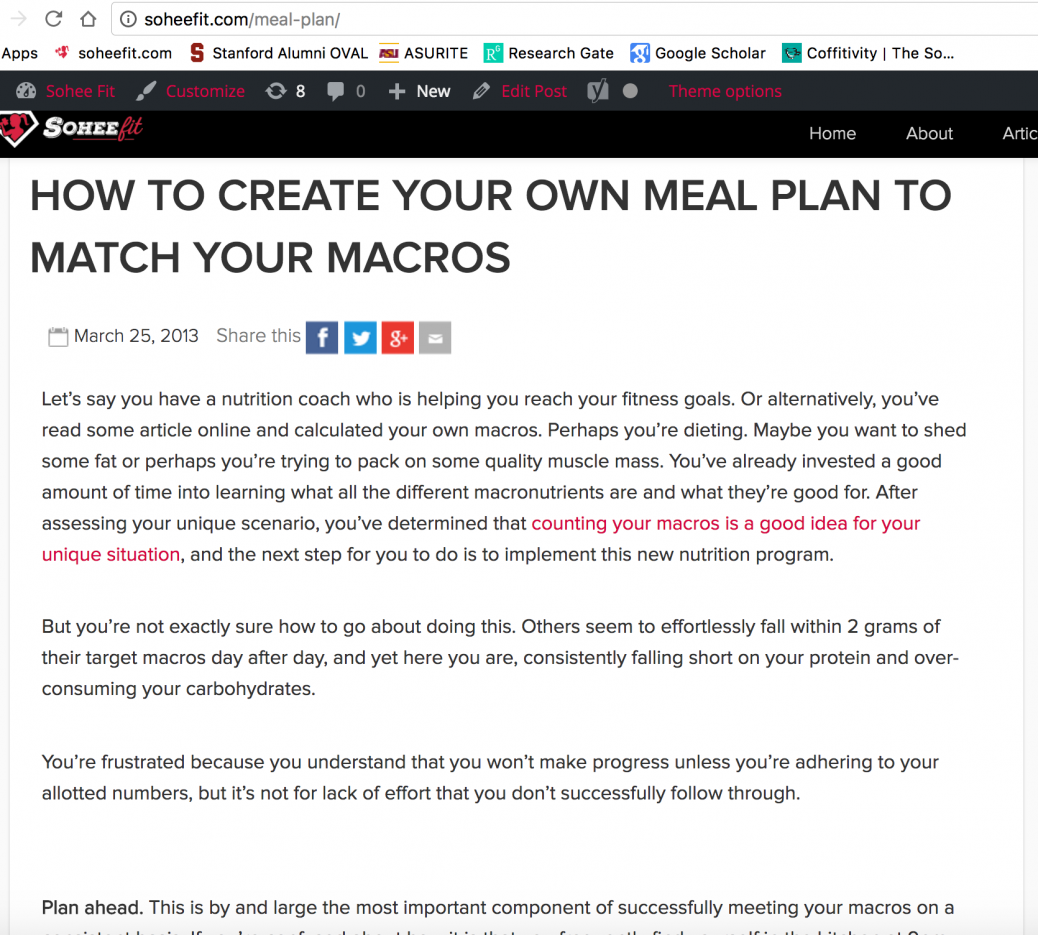
She very clearly posted it to her Instagram:

I should note that the above is just a sampling of the many, many posts she’d copied, but this should give you a solid idea of what she’d been up to.
A few things I noticed here:
- When possible, she’d remove the logo or name off of the infographic (especially if it was against a white background or could be easily cropped out). If not, such as when there was a watermark, she’d re-create the infographic on her own (which, from my understanding, is technically not illegal — but still iffy).
- Sometimes, she’d change around a few words, but the vast majority of the writing would still be stolen from someone else.
- She’d mix and match pictures and captions. Siobhan had not only stolen my words from my Instagram and Facebook, but she’d also copied paragraphs from an article I’d written years ago. It’s a good thing I can recognize my own writing pretty easily, even more than four years after the fact. 🙂
I took a moment to pick my jaw up off the floor. Then, I decided to give her the benefit of the doubt and reach out to her privately. There are those, after all, who truly do not understand what plagiarism is and why it’s so egregious, and it would be unfair to expose them if they’re truly naive. Here was my exchange on the night of June 29, 2017:
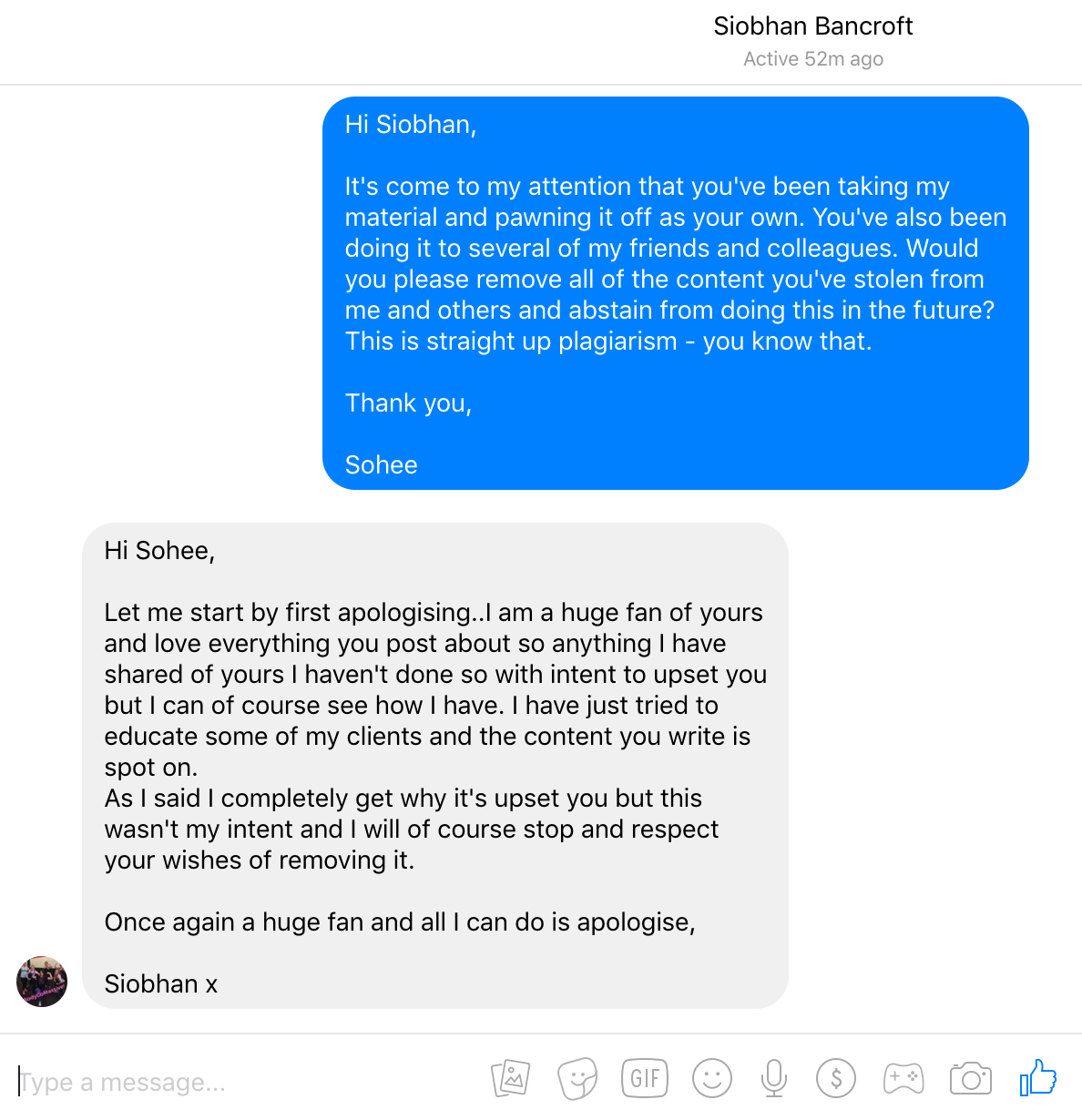
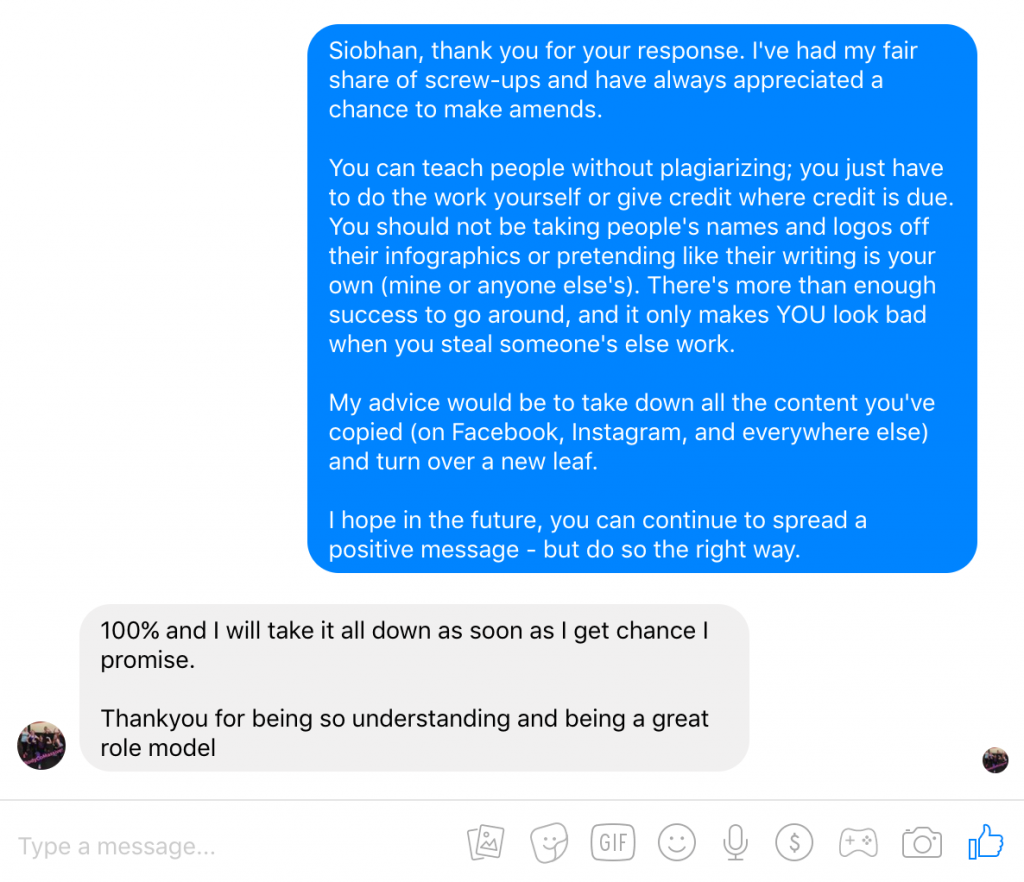
She was very apologetic, as you can see, and seemed to be sincere about her intentions to change for the better. After this conversation, I was confident that she would no longer plagiarize again; I’d called her out on it and made it clear that she’d been doing was wrong, and she’d seemed very receptive and apologetic. At this point, I was going to let it be and move on.
Had me fooled.
Five days later, she did it again.
You can’t be serious.
Here’s the thing: All it takes is a simple Google search – copy and paste selected text into the search bar – and you’ll quickly be able to see if someone’s work has been plagiarized. For example:
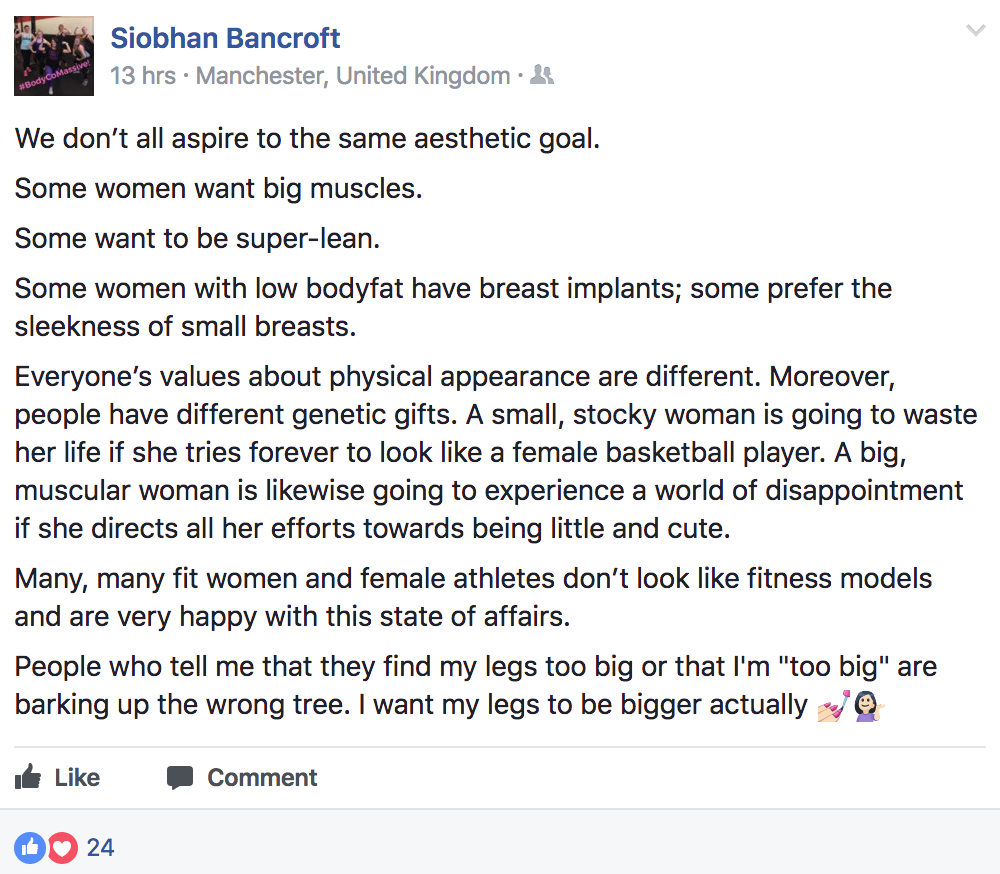
This post caught my attention on the night of July 4th — just days after our private conversation. No major red flags just yet, but as I was reading her writing, I sat there thinking, “Hmm, this seems really well written – let’s see if this is really her own words.” So out of pure curiosity, I copied and pasted the above text into Google. Results below.
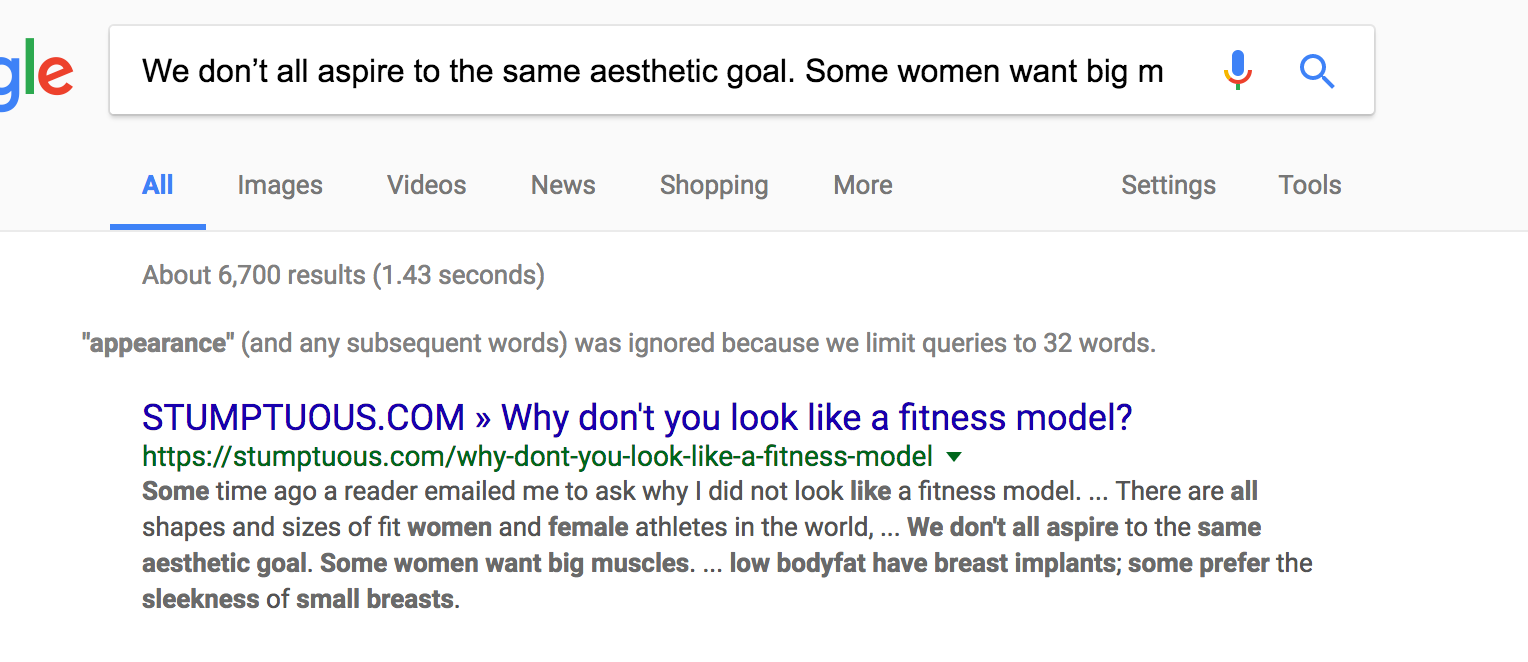
I recognized this immediately because I actually used to read Stumptuous.com regularly. It’s run by Krista Scott-Dixon – who, by the way, has a lot of good shit to say.
Here’s the text Siobhan plagiarized:
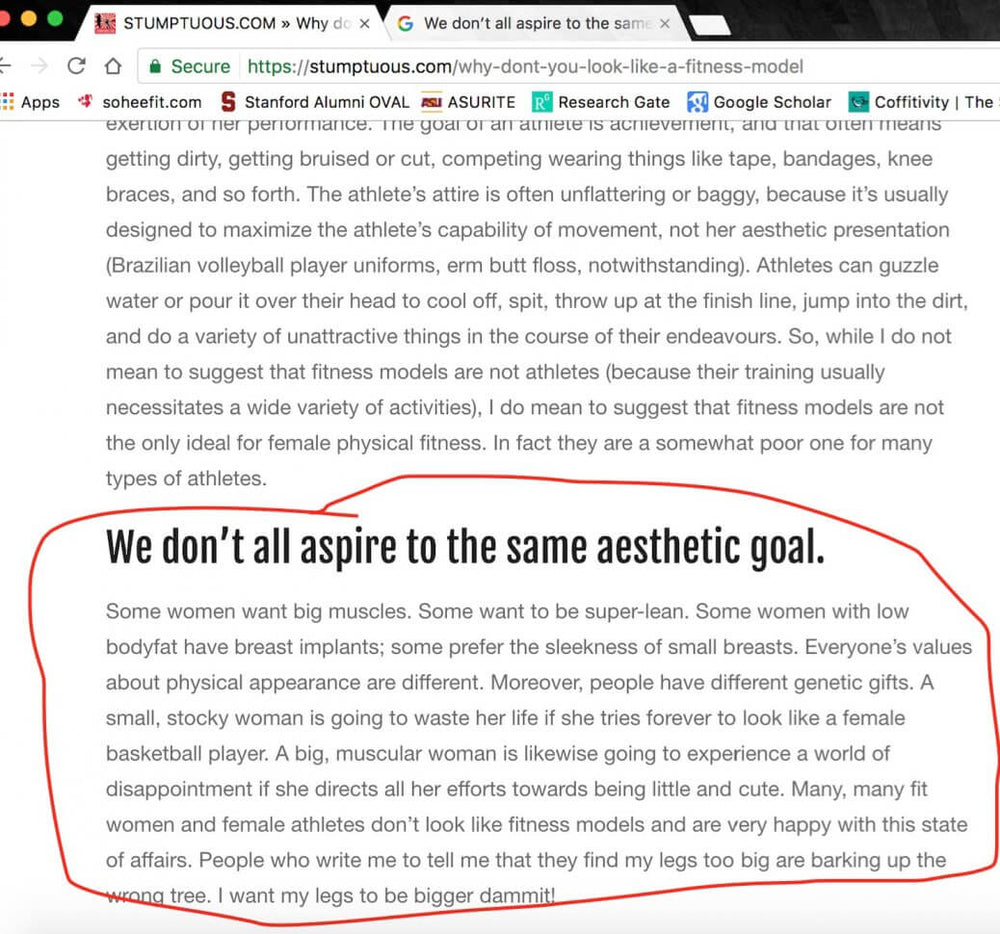
And here she does it again on July 10, 2017, modifying just a few words:
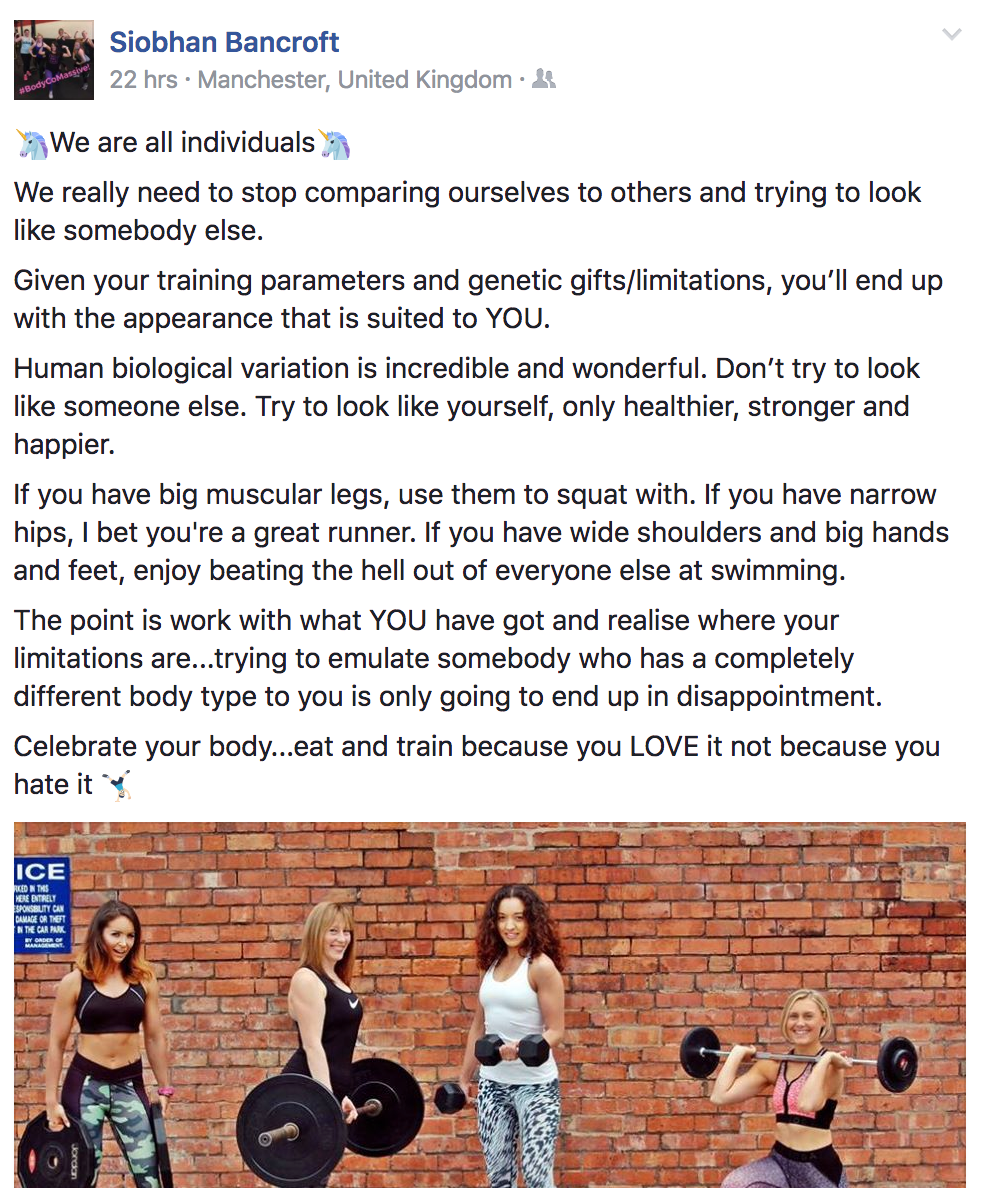
Which was taken from the same blog post of Krista, right here:
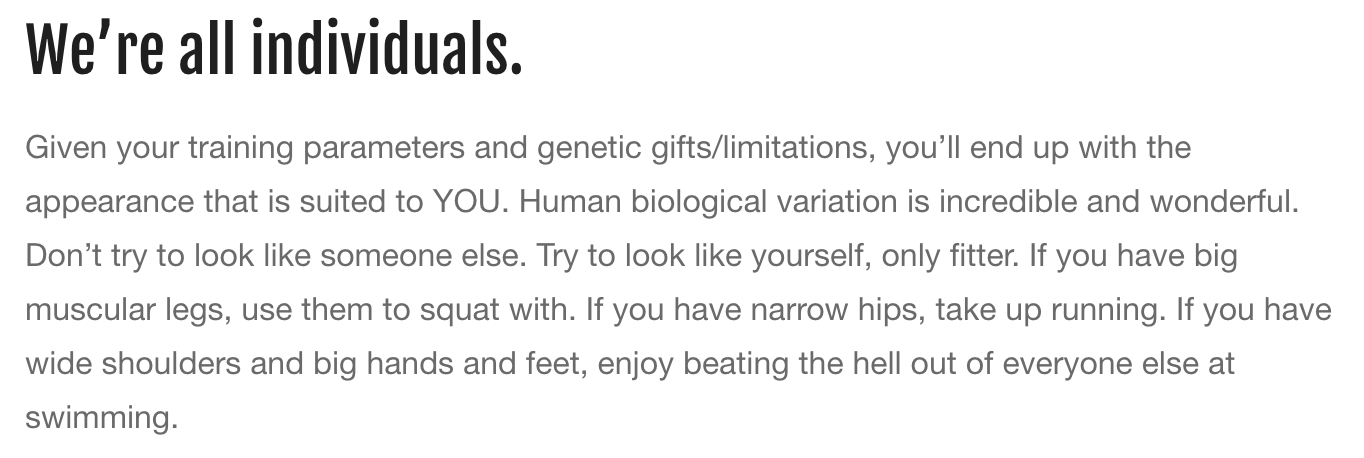
Now, here’s what upsets me the most: After I confronted her the first time, she responded right away, expressing remorse and promising not to do it again. Yet not even a week later, she was back to her ways! I’d like to think that she knew full well that I meant that she shouldn’t plagiarize from anyone, not just me. It seems, unfortunately, that she instead took to combing through articles on the Internet to continue taking others’ written words as her own.
Yes, sometimes two different people come up with the same idea independently. There’s no issue with this. Sometimes, you’ll see variations of the same concept spreading around the Internet. This is also okay. Hell, there may even be a time when you unknowingly say or write something without realizing that at one point in time, someone else said it before you.
However, intentionally taking the time and energy to doctor an image and copy and paste entire paragraphs – not just once, but repeatedly – is an entirely different animal.
When you’re knowingly taking someone else’s work, straight up copying and pasting his/her content, passing it off as your own, you can’t claim innocence.
But isn’t it a good thing to spreading good quality content? Of course it is. Good information should be shared frequently and often, particularly if it’s within your field.
There’s a right way to do it and a wrong way to do it, however. If you like someone else’s work, you have numerous options.
Bret Contreras sums it up nicely in his post from April 10:
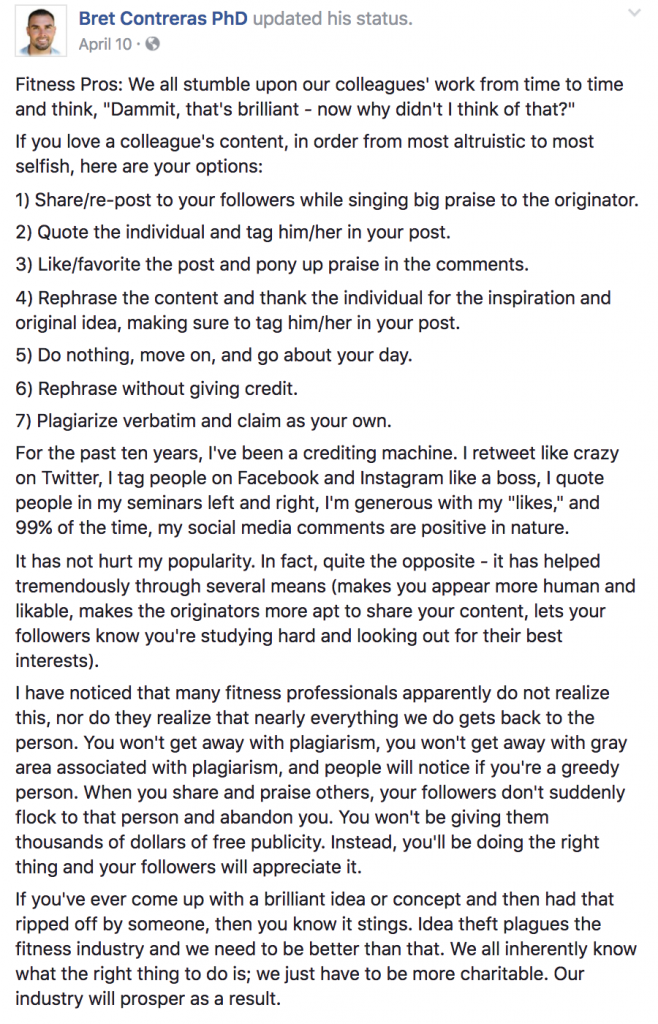
As you can see, there are six – six! – different courses of action to take, all of which are acceptable.
I’ve kept my mouth shut about this over the past several years. I’ve had my articles stolen, entire pages from my website copied verbatim, and my infographics hijacked. But I’m realizing now that I’m only feeding the problem if I continue to stay quiet. Following this string of incidents in particular, I’ve realized that sitting around is not enough. If you’re in the industry and this is happening to you, I urge you to do the same. We need to combat this.
My hands have literally been shaking with anger as I’ve typed these words.
Yes, you can say that imitation is the sincerest form of flattery, but this has gone too far. Flat-out stealing from others is a form of disrespect and shows complete disregard for the fact that they have worked hard to create original work. This is theft.
We need to be better than this.
No post or article is worth sacrificing your professional integrity just to take shortcuts with your career.
A big part of why plagiarism continues to be a growing problem is that not enough people are speaking up.
To recap, here are behaviors that are not okay:
- copy and pasting someone else’s words and posting them as your own (even if you change a few words)
- stealing someone’s image and removing their name and logo
Below are a few examples of sharing content done correctly.
Paul reposted my image and my caption as is and tagged me at the beginning:
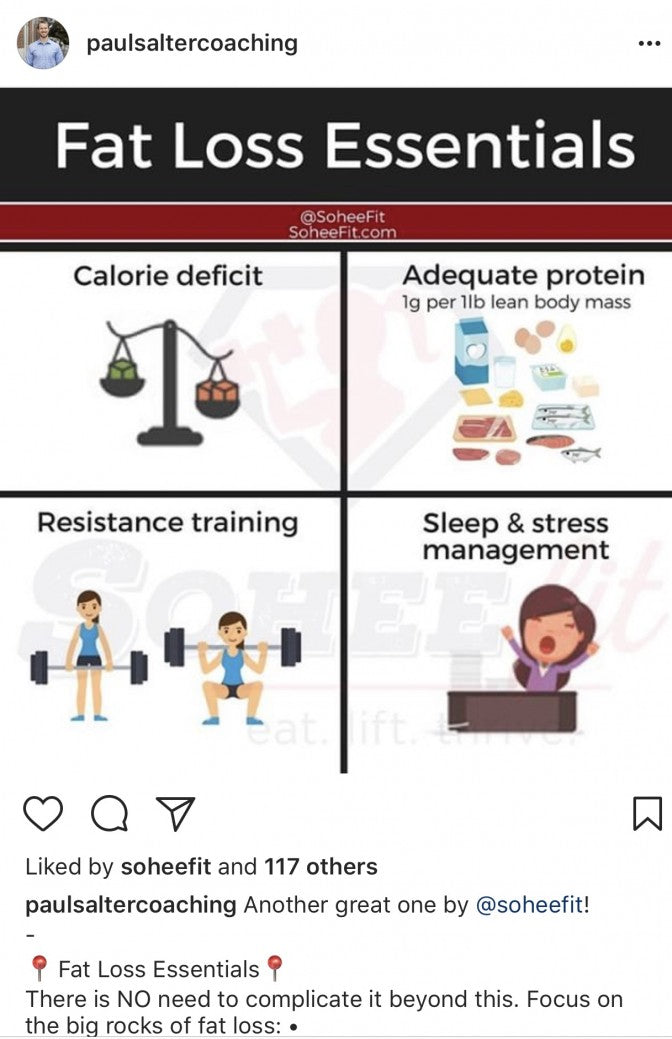
While Devon recreated my hierarchy of fat loss infographic, she publicly credited me for the idea and then used all of her own words in the description:
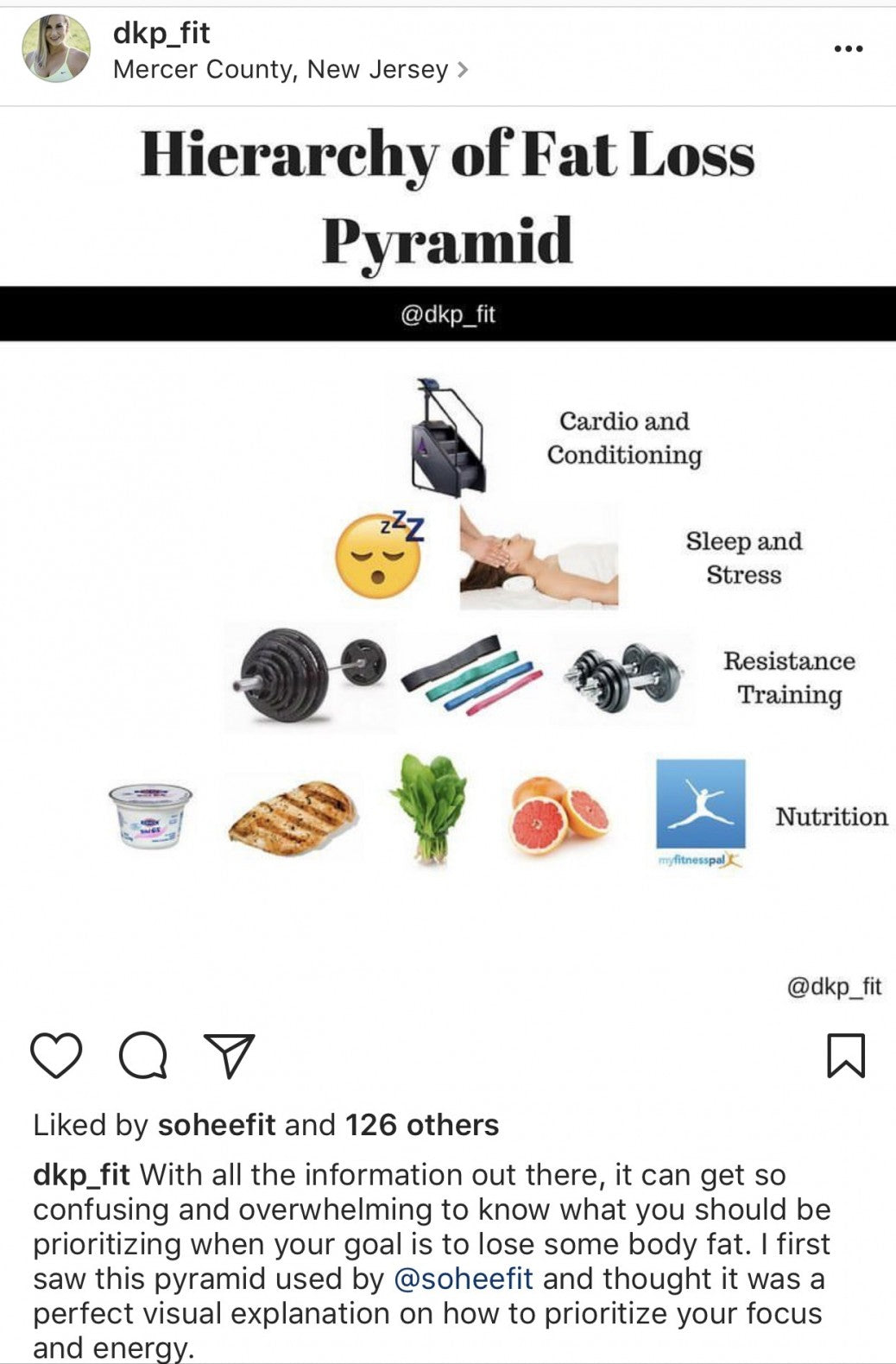
Abbey thanked me for the infographic, then added her own caption:

If you’re unsure if someone is knowingly plagiarizing (meaning you suspect that they do not actually realize that it’s wrong to do), or if you believe this to be their first offense, perhaps reach out to them privately first. While I don’t condone idea and content theft, I also think we should give others a fair chance to redeem themselves and correct their ways.
We need to be each others’ eyes and ears. It’s easier than ever to steal others’ content, yes, but it’s also easier than ever to get caught. The only way this behavior will stop – or at least die down – is if there are serious and lasting repercussions.
As the saying goes, “If you see something, say something.”

